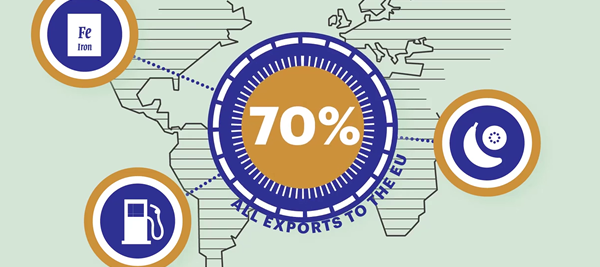Three days of social mobilisation (8-10 June) kicked off today in Brussels and Strasbourg to mark the EU-CELAC Summit (10-11 June). The broad coalition aims at strengthening and giving visibility to existing resistances and struggles taking place in the two regions. They highlight new initiatives, which move away from the trade and investment architecture promoted by multinational corporations.
During this week the European Parliament in Strasbourg will vote on the TTIP (the Trans-Atlantic Trade and Investment Partnership) agreement between the EU and the US.
The three days of mobilisation started this morning with a public debate involving representatives of governments, parliaments, social movements and trade unions on the highly contested austerity policies in Europe; Free Trade Agreements and Bilateral Investment Treaties; and corporate crimes and human rights violations; by European and Latin American multinationals, as well as the global ‘resource grab’.
Maria Fernanda Espinosa (Ecuador Permanent Mission to the UN in Geneva) said: “There is a mandate for the United Nations Human Rights Council to negotiate a legally binding instrument on Transnational Corporations and Human Rights. At this point the most important thing is to have all member states participate in an open and constructive way in the first Inter Government Working Group meeting (6-10 July) in Geneva.”
Susan George (President of Transnational Institute) stated: “The TTIP will not only affect European and US citizens, but the entire world’s population, since it aims at setting new global standards. The TTIP is a vampire treaty. We must expose the monster to the light to make it retreat and die”.
“We seek to support strong solidarity efforts in carrying out political and cultural mobilisation, concrete actions, political pressure and lobbying, as well as any and all possible activities that help advance the popular resistance,” remarked Wendy Cruz (La Via Campesina Honduras).
Brussels-based civil society networks which monitor EU-CELAC relations, launched an animated video during the event. The video explains how a trade relationship – mainly based on the extraction of raw materials – is contributing to depletion of non-renewable natural resources, global warming and social conflicts. Civil society organisations have warned repeatedly about the dangers of unbalanced trade relations, and have urged the EU to promote more symmetrical relations contributing to effective respect for human rights while promoting sustainable alternatives to the current economic model.
